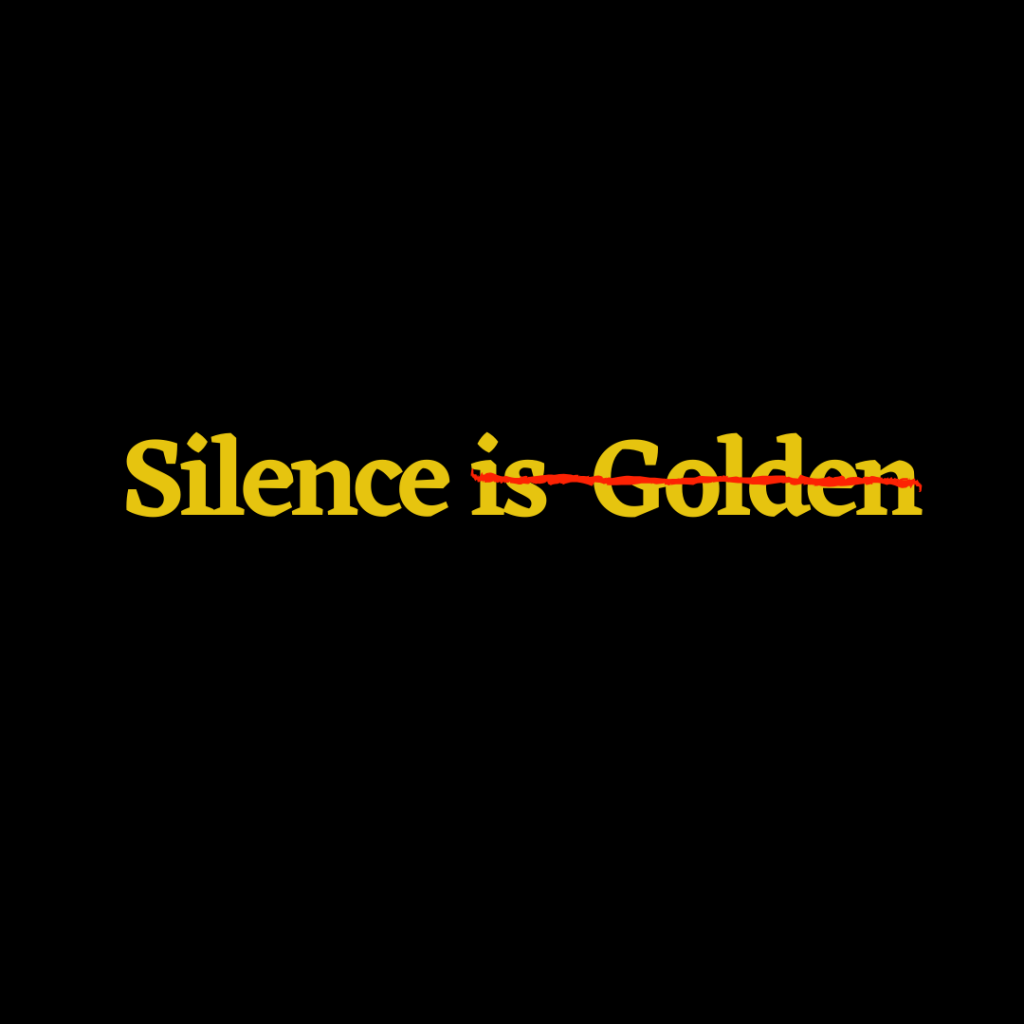Silence is NOT Golden

Note: this message was originally designed to be a video, but due to circumstances beyond our control, it’s now presented as text.
It matters that YOU (you personally, not your your organization) are NOT silent with your team about the murder of and subsequent civil unrest following the death of George Floyd. Ignoring or being silent about the issue:
1. does NOT ease tension among your employees.
2. does NOT increase your bottom line or save money.
3. does NOT translate into less liability for harassment and discrimination.
4. does NOT help your organization attract diverse talent.
5. does NOT translate into greater synergy, creativity, or innovation.
6. DOES send a message about your values and brand.
Indeed, this is quite the defining moment and experience for us as a nation, for people as individuals, and, consequently, for you as a leader. I had in mind those leaders who might feel stuck between a rock and a hard place in terms of responding when I crafted this message.
First, I want to address the bad news: there is no way avoid the topic or be neutral. Even if you don’t address it publicly or in a meeting, it will come up in conversation, if not with you then certainly amongst the people around you. Further, neutrality doesn’t leave you unscathed. Instead, it makes you the subject of a whisper campaign. If you don’t address the issue, people will create their own a narrative about you.
If you find yourself in this place, I’d like you to ask yourself why do you want to be neutral. What are you worried about losing? By the same token, have you considered that you could possibly gain benefit by addressing it? Frankly, concerns of this sort are natural and quite human. My fellow business owners and I have talked openly about the risk to revenue that we might face. But we have also talked about how we’d rather work to find more clients than swallow the bile of inauthenticity.
As a show of both solidarity and transparency, I’ll share some of my own experiences around racism in professional spaces and how they have impacted my values. For me, this issue really does come down living my values.
When I decided to start my business, a significant part of my motivation came from my decision to longer try to force myself into the box that I believed I needed to fit in in order to be well-received by most employers. I felt like everything about me was rejected, even the sound of my voice. Even now, I often tease my black girlfriends who work 9 – 5 jobs about being able to tell whose in the room when they call me from their jobs because their voices are up a couple of octaves and they sound unnaturally chipper. That performance is never for me. But for a time, even as an entrepreneur, I tried to play the assimilation role, too, to behave, to dress (especially as it relates to my hair), to do everything possible that would make me more socially acceptable to potential clients who I believed would’ve preferred to work with someone who was white. Evenso, I had a client tell me that I was too black. More specifically, that the examples and stories that I told during a workshop were too black. To this day, I still don’t have a response for her. That request was a request to change the whole of who and what I am. Not only was this experience humiliating, it was murder on my confidence: did other clients think the same? More than anything, worrying about being received this way was exhausting.
When you spend time worrying about being picked apart and trying to tap dance, you lose your ability to focus and really be in the moment. The cognitive load of that mental work completely undermines the quality of your best work. And the fallout isn’t just limited to work. You cry in the car going and coming, your hair thins, you develop acid reflux, and you start to take weekends like a drug.
What more is that you fall into a type of self-fulfilling prophesy: you get really upset at any request that you do anything extra. It’s not because you aren’t a team player. It’s because you, the real you, isn’t even on the team and you know that there’s no benefit for going the extra mile that doesn’t come with more pretending. They think you don’t care and make a mental note of it, but that’s just not true.
When leaders are silent about issues around race, discrimination, bigotry, harassment, and police brutality, to name a few, this is the story that your employees tell….that you are okay with it AND WANT THEM to continue to pretend, that you are only interested in the pretend, inauthentic version of them. The other story that your employees tell is that it is not safe to bring up how they are treated and how the day-to-day culture, both at large and within the organization, impacts them. Finally, employees come to believe that you expect them to accept the consequences of not pretending. The consequences could manifest in clear loss of opportunity as well as being ostracized. Consequences also show up as the disappointment that comes from not being able to fully utilize your talents and make a meaningful and lasting contribution to the organization or meet your own definition of professional success. But the greatest terror is the uncertainty about why you’re not excelling the way that you believe should be and could be: is it because I am what I am or is it something else?
Taking a position might feel risky. Taking a stand might pull you into political waters that you don’t want to be in. But because of your authority and influence, you’re already there. Why not clarify for your team and organization where you stand?
No matter what your position is on George Floyd, police brutality, or our current political climate, clarifying your position has two benefits. It strengthens people’s ability to choose their work environment and it helps you to attract the types of clients and team members who want to work in the type of culture you’ve created and represent your values.
Maya Angelou once said, “Of all the virtues, courage is the most important because without it you cannot practice any of the others consistently.” Will you tell your own story or contend with the one that will be created for you?





